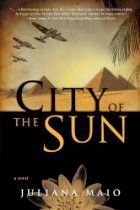There is a rather chic monster populating – or maybe
overpopulating – popular culture these days. It sucks the blood of unfortunate
victims, sometimes killing, and sometimes turning the victim into another
monster like itself. Lauren Owen has produced The Quick and released it into this popular culture, and taken a
very different tack with her subject.
This novel presents a handful of lives affected by the
unwilling conversion of a Victorian London man into one of these monsters. It
deals with the pain and confusion of being thus transformed, and with the
guilt, fear, and hopelessness of those he once loved. If you want some hope
from these ghastly and gruesome events, you won’t find it here. The man
transformed – we don’t encounter the ‘v-word’ before we’re past the
first-quarter mark of the book – cannot help what he has become, and so cannot
help the famished and murderous way he feels. And so his devoted sister tries
to help, ultimately to no avail.
That is the story. The whole thing is fanciful, obviously,
and atmospheric to a fault. It is simply a dark book from beginning to end:
many scenes are nighttime scenes because of vampires’ hatred of the sun and
light; even daytime scenes are smudged with 19th-century London’s
famous fog. But more than that, this story completely lacks hope. There are two
classes of vampire in London at the time: one is an elite club of wealthy and
powerful gentlemen, who voluntarily gave up living for the rewards of the
un-dead life. The other are famous London street urchins, poor, vicious,
lawless. And this is actually one of the interesting points here – there is
class division and strife even among inhuman monsters.
Ultimately I can’t see my way to recommending this book. Its
descriptions of the psychological and physiological changes occurring in
newly-turned vampires are interesting – a different take on some popular
fancies, but really that is not enough to save this book.




















